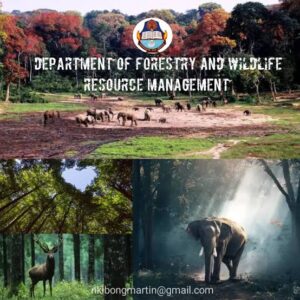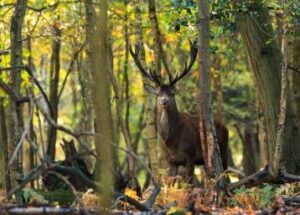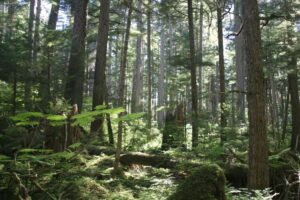Back to: Environmental Biology 300 Level
Welcome to class!
Hi there, champion of the environment! Have you ever walked through a forest and felt the cool breeze, or heard the chirping of birds and the rustling of trees? Or maybe you’ve seen how deforestation or poaching affects our wildlife? Forests and wildlife are treasures that provide food, medicine, shelter, clean air, and cultural value. But just like any treasure, they must be carefully protected and managed. Today, we’ll discuss how Nigeria and the world can protect these natural gifts through sustainable forest and wildlife management.
Resource Management: Forest & Wildlife
What is Forest and Wildlife Resource Management
Forest and wildlife management refers to the scientific and practical efforts to conserve, protect, and use forests and wild animals in a way that benefits people today while preserving them for future generations. In Nigeria, our forests—from the Cross River rainforest to the savannah woodlands of Niger and Kaduna—are home to valuable trees like mahogany and iroko, and animals such as elephants, monkeys, pangolins, and countless bird species.

Sadly, many of these are under threat due to human activities such as logging, bush burning, illegal hunting, and land conversion for farming or urban development.
Functions and Importance of Forests
Environmental Role: Forests help absorb carbon dioxide, regulate rainfall, and prevent erosion.
Economic Role: Trees provide timber, medicine, fruits, nuts, and income through legal logging and ecotourism.
Social and Cultural Value: Forests are sacred in many Nigerian communities and play roles in festivals, traditions, and herbal healing.
Habitat Provision: Forests support wildlife by offering food and shelter.
Wildlife Management Practices
Wildlife is a key part of the ecosystem. When one species disappears, others suffer. Wildlife management includes:
Establishing game reserves and national parks – e.g. Yankari Game Reserve in Bauchi and Gashaka-Gumti National Park in Taraba.
Banning poaching and illegal trade of endangered species – enforced by laws like the Endangered Species Act.
Captive breeding and release programmes – raising animals in safe conditions and releasing them back into the wild.

Environmental education – creating awareness about the need to protect wildlife.
Sustainable Forest Management Strategies
Afforestation and reforestation – planting trees to replace those cut down.
Selective logging – only cutting mature trees instead of clearing the whole forest.
Agroforestry – combining farming with tree planting to preserve soil and biodiversity.
Community forest management – empowering local communities to protect nearby forests and benefit from them.
For instance, in Edo State, the REDD+ programme is helping to conserve forests while creating jobs and protecting biodiversity. Communities are trained in sustainable farming and forest monitoring, creating a win-win situation for both people and nature.
Threats to Forest and Wildlife Resources
Some of the key threats include:

Deforestation due to farming, road construction, and illegal logging
Poaching and overhunting
Climate change and wildfires
Lack of enforcement of environmental laws
Summary
- Forest and wildlife management is about using these resources wisely while protecting them for future generations.
- Forests provide environmental, economic, social, and ecological benefits.
- Wildlife is managed through protected areas, anti-poaching laws, and education.
- Sustainable forest practices include afforestation, selective logging, agroforestry, and community involvement.
- Major threats include deforestation, illegal hunting, and weak enforcement of conservation laws.
Evaluation
- Define forest and wildlife resource management in your own words.
- List three benefits of forests to the environment and people.
- Mention two methods used in wildlife management in Nigeria.
- What are three threats facing forests and wildlife today?
Well done, eco-warrior! By learning how to care for our forests and wildlife, you are becoming part of a generation that protects Nigeria’s natural heritage. Stay curious, stay responsible, and know that Afrilearn is proud to grow with you, one brilliant step at a time.
